Health Forum Sees Global Experts Share Thoughts on and Methods Against COVID-19
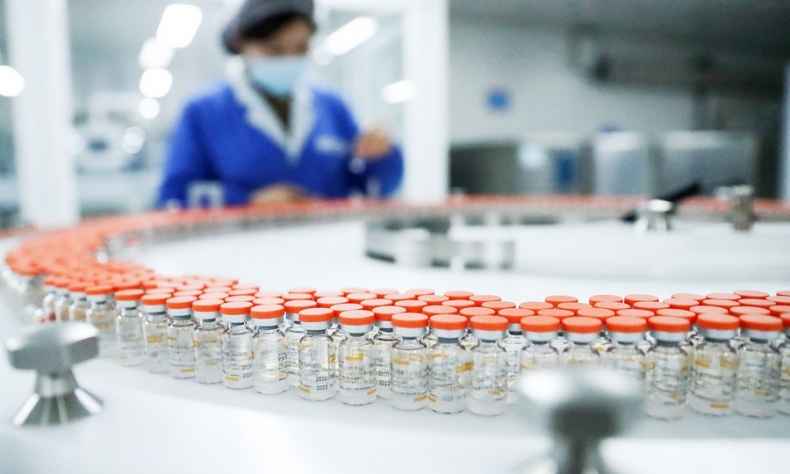
Cooperation on epidemic control is crucial to building a global health community.
Global medical researchers are wasting no time in developing drugs and vaccines to combat the COVID-19 pandemic, and the latest research results unveiled by Chinese and U.S. researchers have given a further boost to public confidence in the joint battle against the virus. Zhang Linqi, a professor at Tsinghua University’s School of Medicine, told the World Health Forum on November 20 that his team had jointly developed a cocktail therapy of monoclonal antibodies BRII-196 and BRII-198 that shows an efficacy rate of 78 percent in cutting hospitalizations and deaths among high-risk groups in late-stage clinical trials. The therapy is undergoing phase-III clinical trials in seven countries, including the United States, Brazil and the Philippines.
The inaugural forum, held online from November 20 to 21, was sponsored by Tsinghua University and organized by the university’s Vanke School of Public Health. Approximately 50 academics, entrepreneurs and heads of international organizations attended the event, which covered issues relating to the United Nations (UN) 2030 Sustainable Development Goals, including pandemic response, healthcare in the era of big data, and improving public health amid the pandemic.
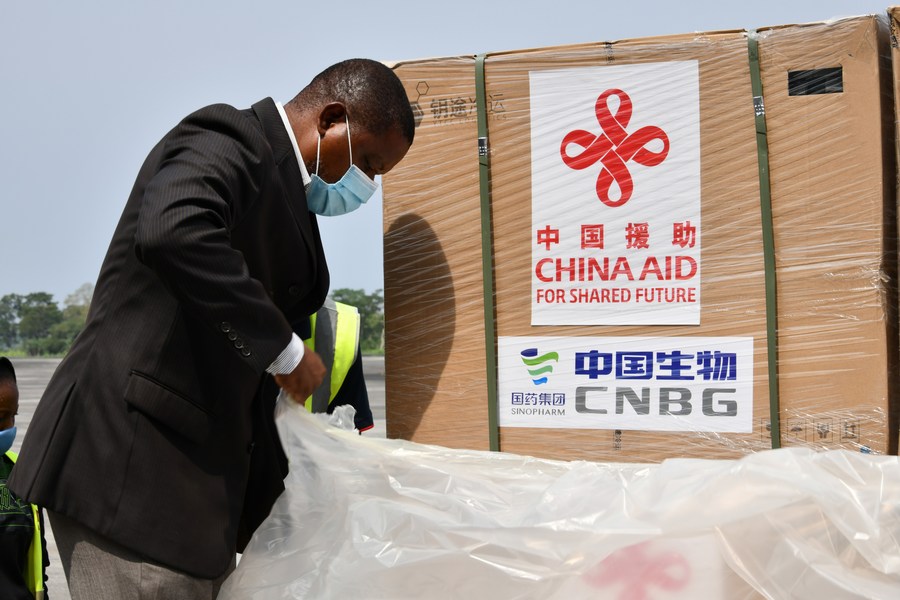
According to Zhang, the treatment was developed by his team at Tsinghua in collaboration with the Third People’s Hospital of Shenzhen in Guangdong Province and Brii Biosciences, a biotechnology company based in China and the U.S. Since May this year, the therapy has been provided free of charge to more than 800 patients in China as an emergency treatment method.
“The research and development (R&D) of the drug involved data collected from patients infected by COVID-19 variants, which ensures the effectiveness of treatment,” Zhang said.
The drug is currently being tested in a mid-stage clinical trial in China. In early October, the team submitted an application for emergency use approval to the U.S. Food and Drug Administration. The team has also applied to the National Medical Products Administration, China’s top drug regulator, for conditional market approval.
Like Zhang, many global experts took the forum as an opportunity to stress the urgent need to accelerate drug and vaccine R&D, and improve the global health systems. Many of the experts who spoke at the event drew attention to the threats the pandemic has posed not only to people’s health but also to economic and social development, and the unemployment and poverty it has caused. There were also widespread calls at the forum for all nations to collaborate on the joint development of solutions to these crises.
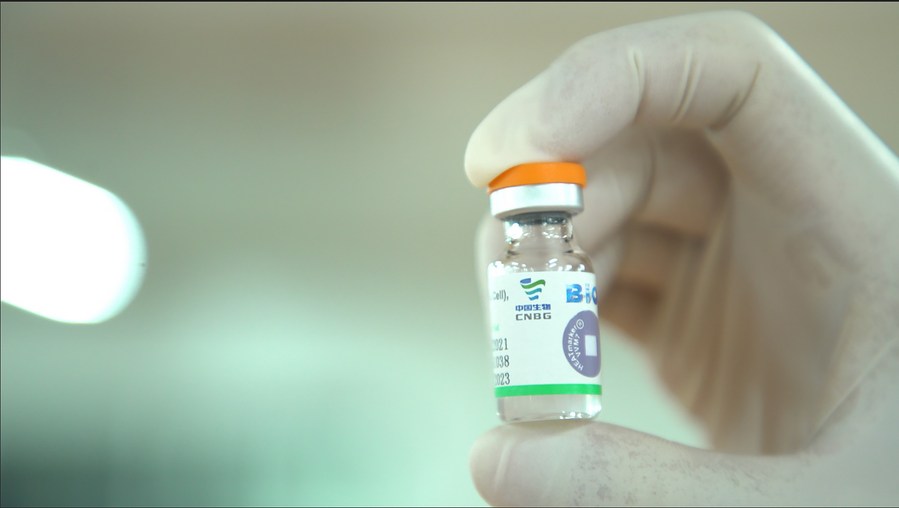
China’s exertions
China has maintained its efforts to control the sporadic emergence of case clusters since the beginning of last year. According to the National Health Commission (NHC), nearly 2.44 billion doses of COVID-19 vaccines had been administered on the Chinese mainland as of November 22.
“China’s commitment to address health and development challenges is inspiring and the resilient public health system it has built is impressive,” Mark Suzman, CEO of the Bill & Melinda Gates Foundation, told the forum.
In addition to pandemic containment and prevention, China’s authorities are focusing more on boosting R&D on antibodies against variants in order to better address the changing pandemic situation. The three technical routes for domestic researchers to develop COVID-19 drugs include blocking the entry of the virus into cells, inhibiting virus replication and regulating the human immune system. As China Central Television reported, the Chinese Government has distributed 315 million yuan ($49.3 million) to 53 research projects for the development of COVID-19 drugs and therapies since the pandemic emerged in 2020.
DXP-604, a new domestically-developed drug based on a neutralizing antibody, has recently been approved for emergency use at Beijing’s Ditan Hospital. While many drug candidates use a dual antibody approach to prevent the escape of variants, DXP-604, a single antibody treatment, has shown efficacy against all current variants. As of early November this year, the drug had been used as part of the treatment for a total of 14 COVID-19 patients in the hospital. The drug was jointly developed by China-based Singlomics Biopharmaceuticals and a team led by Xie Xiaoliang, Director of the Beijing Advanced Innovation Center for Genomics at Peking University. According to results unveiled by the team, the patients saw reduced viral loads and significant alleviation of symptoms such as nasal congestion and loss of smell or taste.
“Our team screened over 8,000 antibody candidates and selected several effective ones. Of these, DXP-604 proved to be one of the best. The single antibody approach based on DXP-604 will lower production cost to less than one-third of that of other drug candidates. Now we are working on promoting its phase-II and III clinical trials overseas,” Xie told Beijing-based Science and Technology Daily.
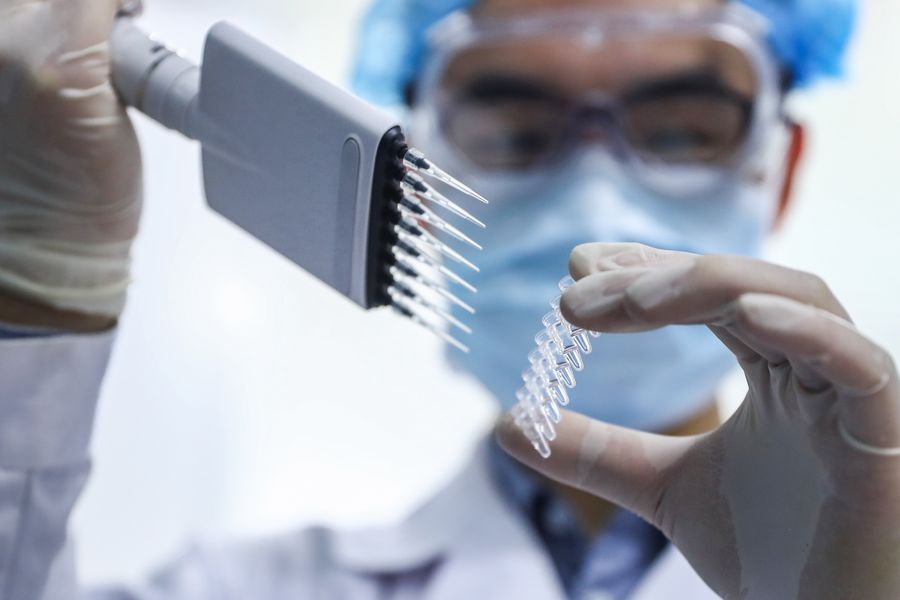
Summon the world
“Solidarity and cooperation are crucial for building a community of common health for all,” Liang Wannian, Vice Dean of the Vanke School of Public Health, told the forum. As Liang highlighted, humans will inevitably face future pandemics and there are still many communicable diseases that pose threats even after COVID-19 is overcome. Future challenges lie in the number and diversity of pathogens with the potential to infect humans, many of which are still unknown. This diversity, both in the origins and mechanisms of infection, makes the next big outbreak difficult to predict and pandemic preparedness an increasing necessity.
Health issues are not the only problems caused by epidemics. Data released during the forum showed that COVID-19 could increase the number of global poor by as many as 119-224 million in 2020 and 142-163 million in 2021—the first increase in global poverty in 20 years.
Facing this common challenge, forum attendees called for efforts in multiple aspects. Takeshi Kasai, World Health Organization Regional Director for the Western Pacific, told the forum that lessons learned from the pandemic include the relationship between health and economic and social wellbeing, as well as the significance of a strong and resilient health system, protection of vulnerable groups for social fairness, and the importance of international exchange.
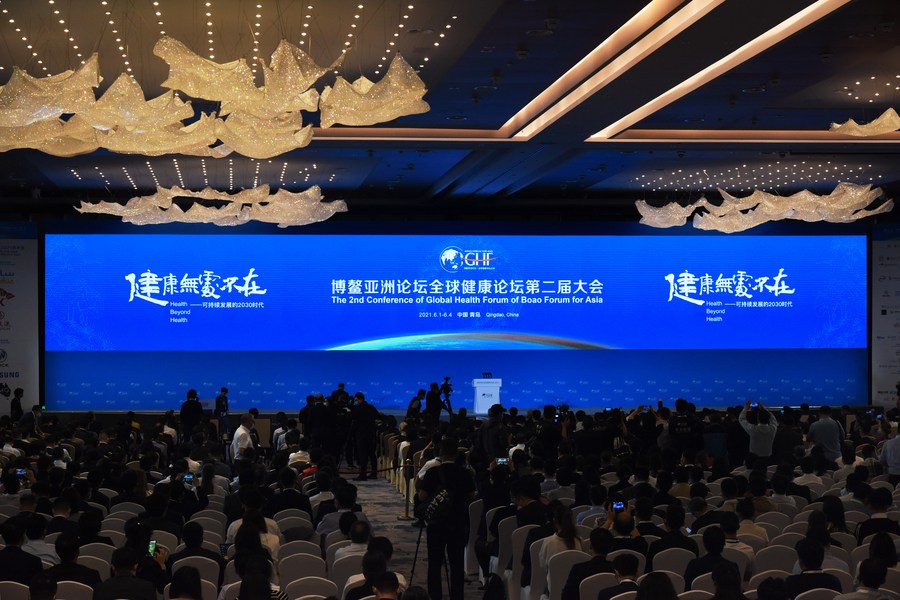
“The ongoing COVID-19 pandemic has exposed the common vulnerabilities in national and international public health systems, which need to be improved,” Margaret Chan, chair of the forum, said. According to Liang, medical authorities need to enhance managerial capacity for handling emergencies, apply advanced technologies for conducting simulations and exercises, and improve the training of talent.
Cooperation on epidemic control is crucial to building a global health community. Tom Frieden, President and CEO of Resolve to Save Lives, a U.S.-based initiative, said that efforts are needed to close the gaps in epidemic preparedness in low- and middle-income countries.
Danilo Türk, former President of Slovenia and current President of the World Leadership Alliance-Club De Madrid, believed that global public health is a public good and must be protected as such. “All governments and international organizations need to take part in the drive. No future disease outbreak should be allowed to become a devastating pandemic,” Türk said.
 Facebook
Facebook
 Twitter
Twitter
 Linkedin
Linkedin
 Google +
Google +










